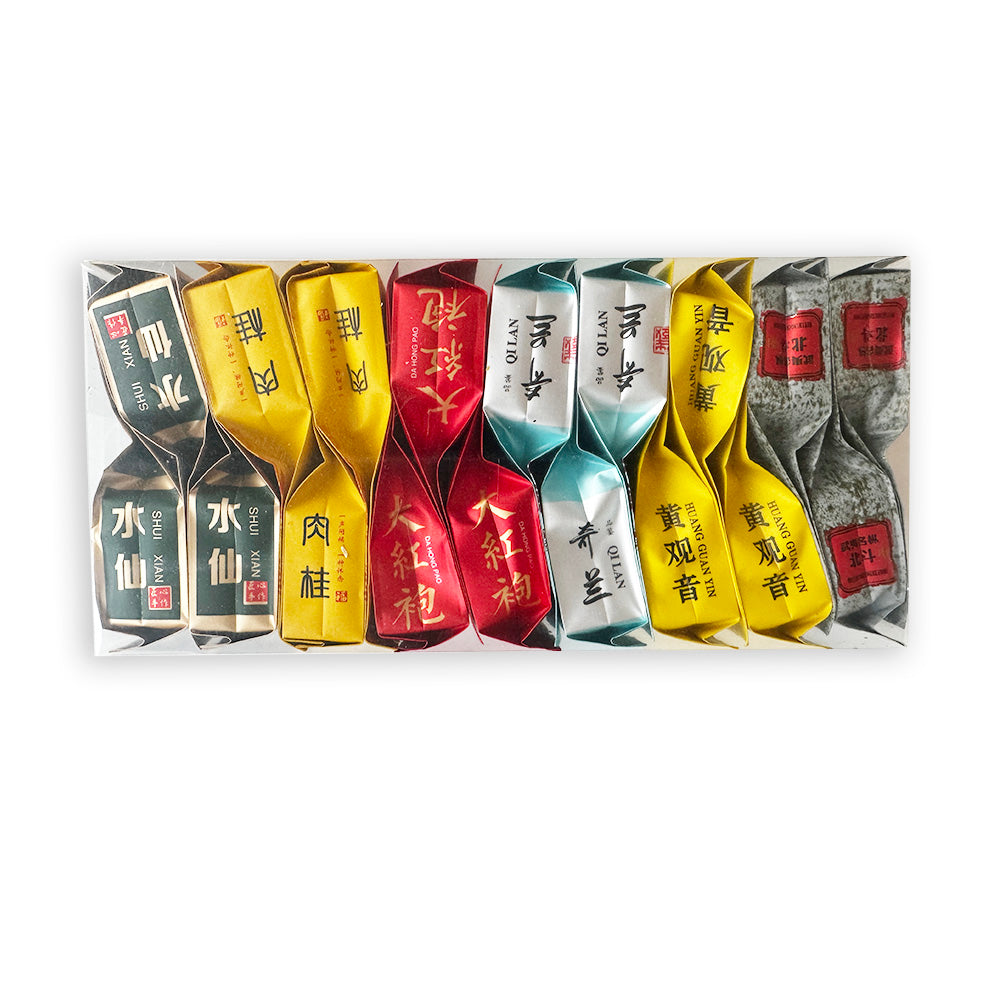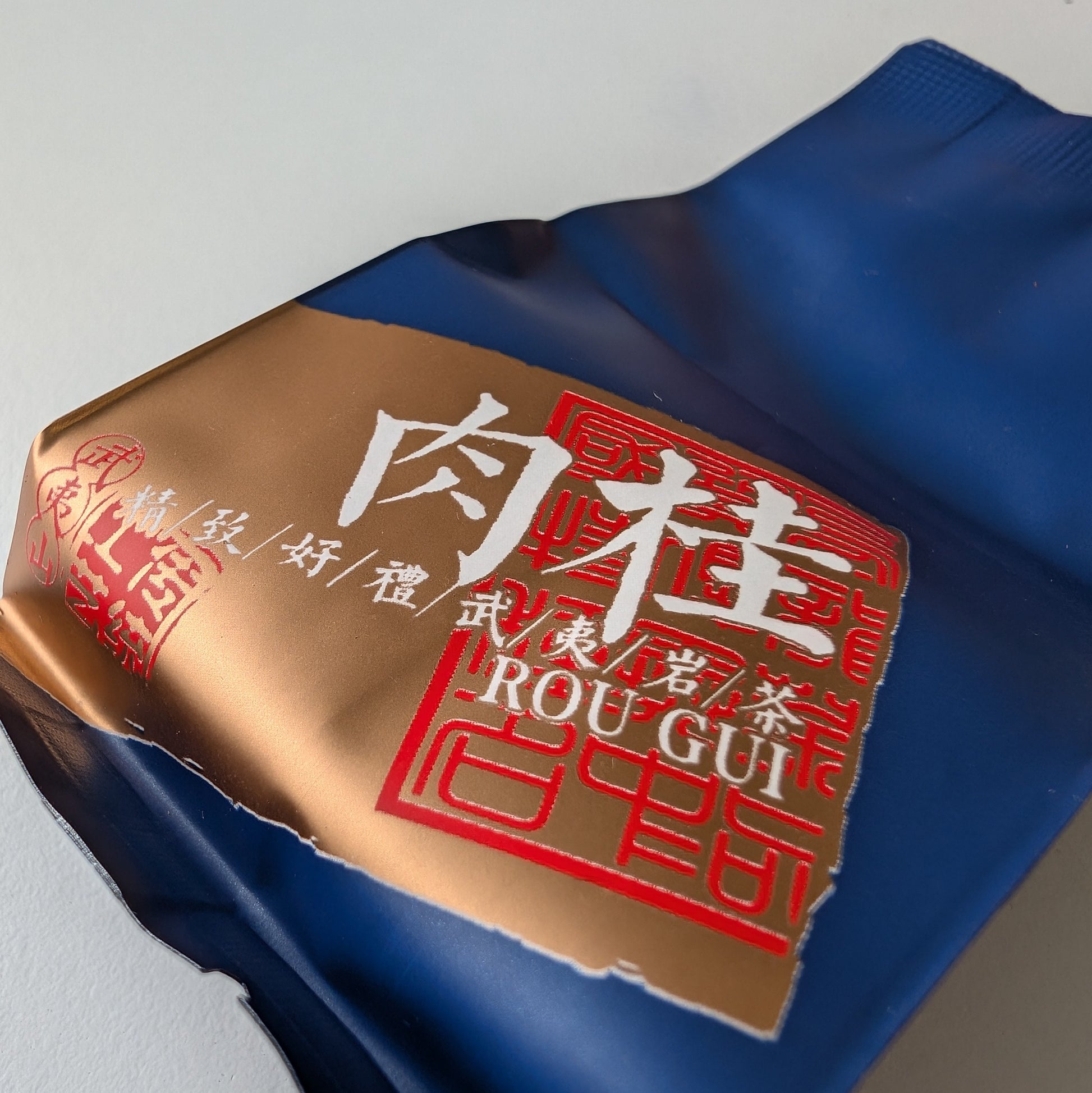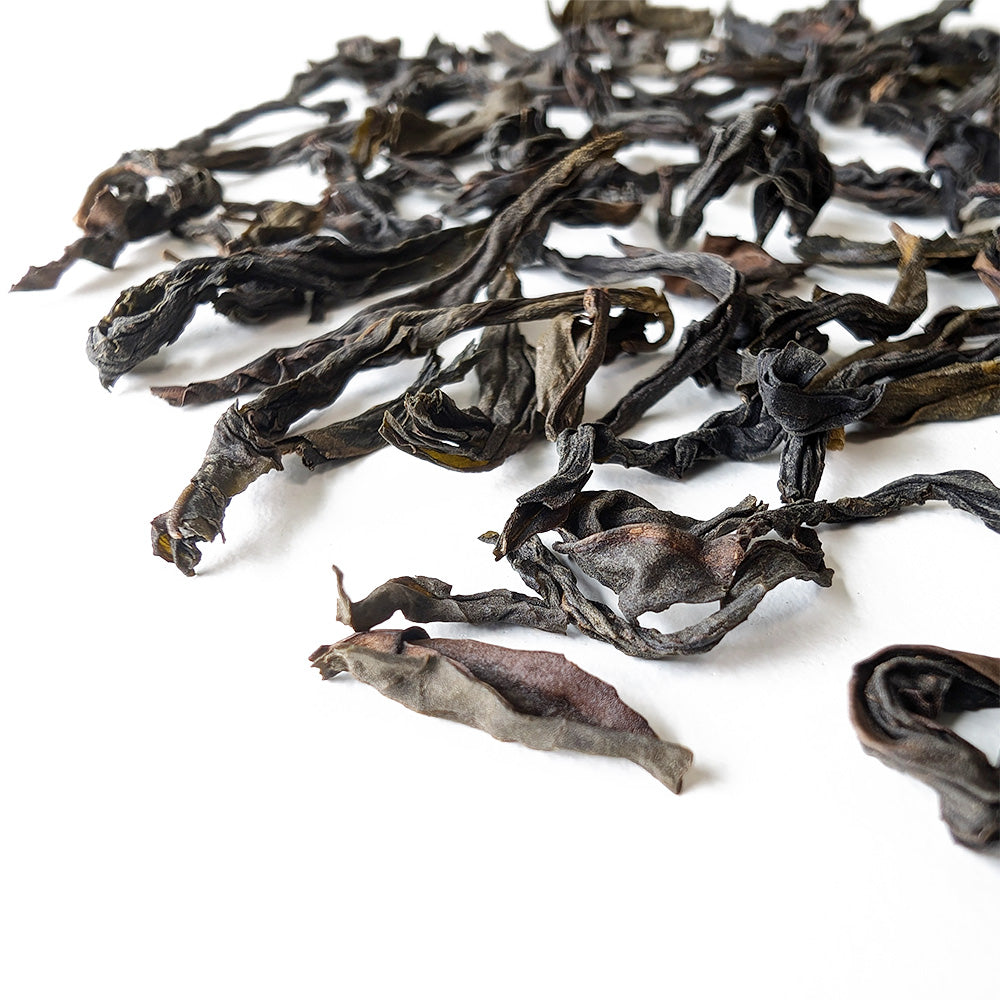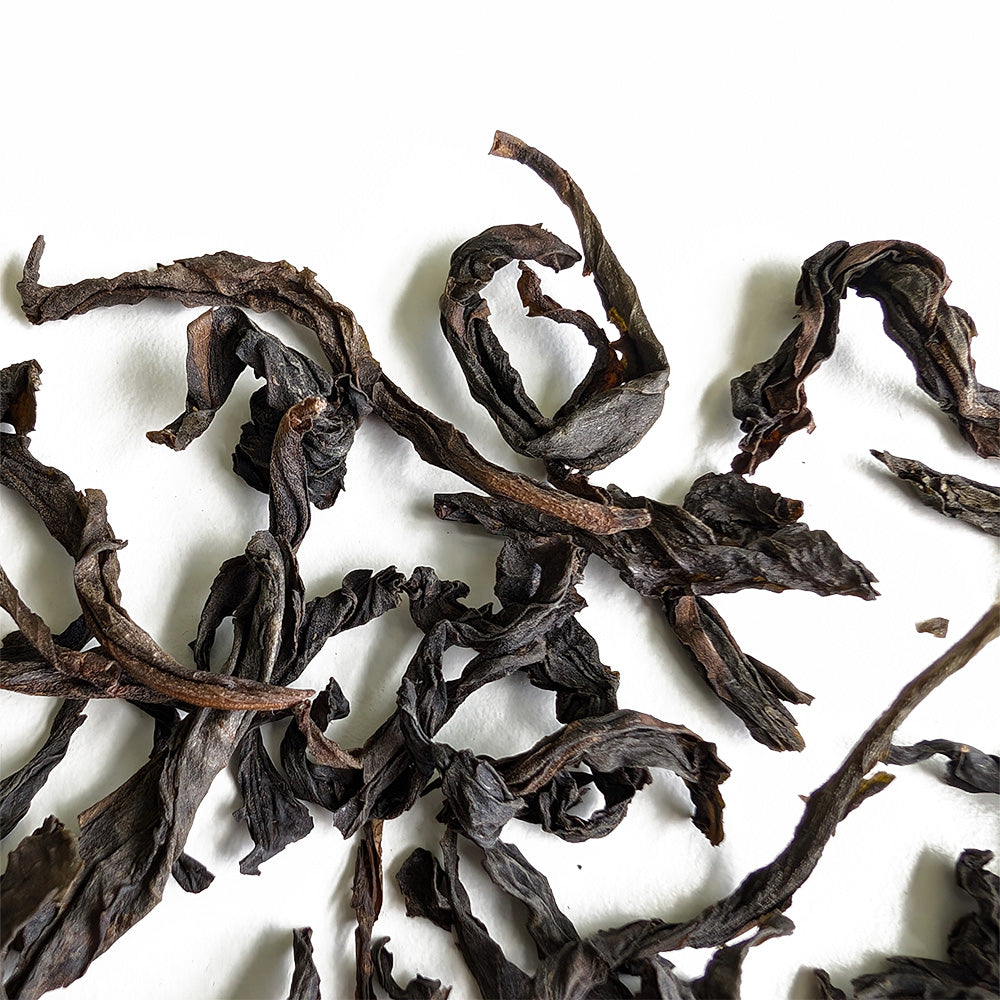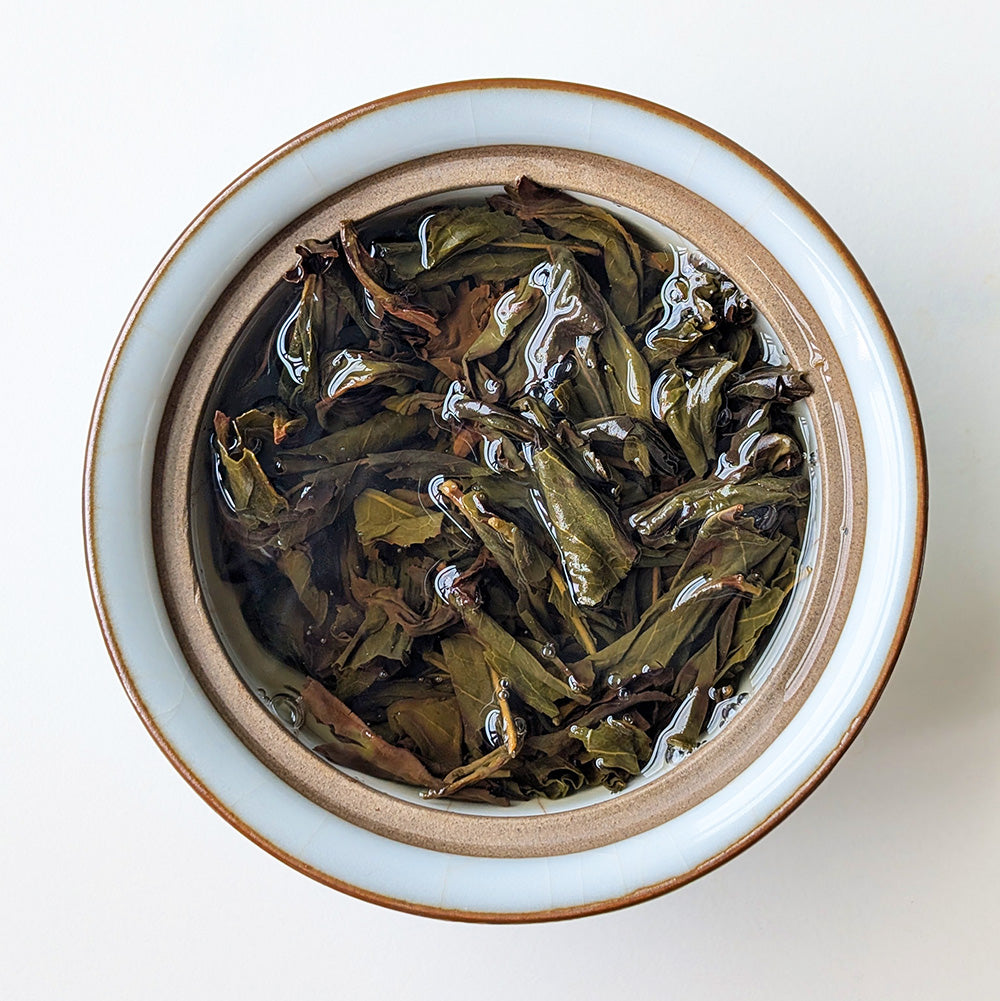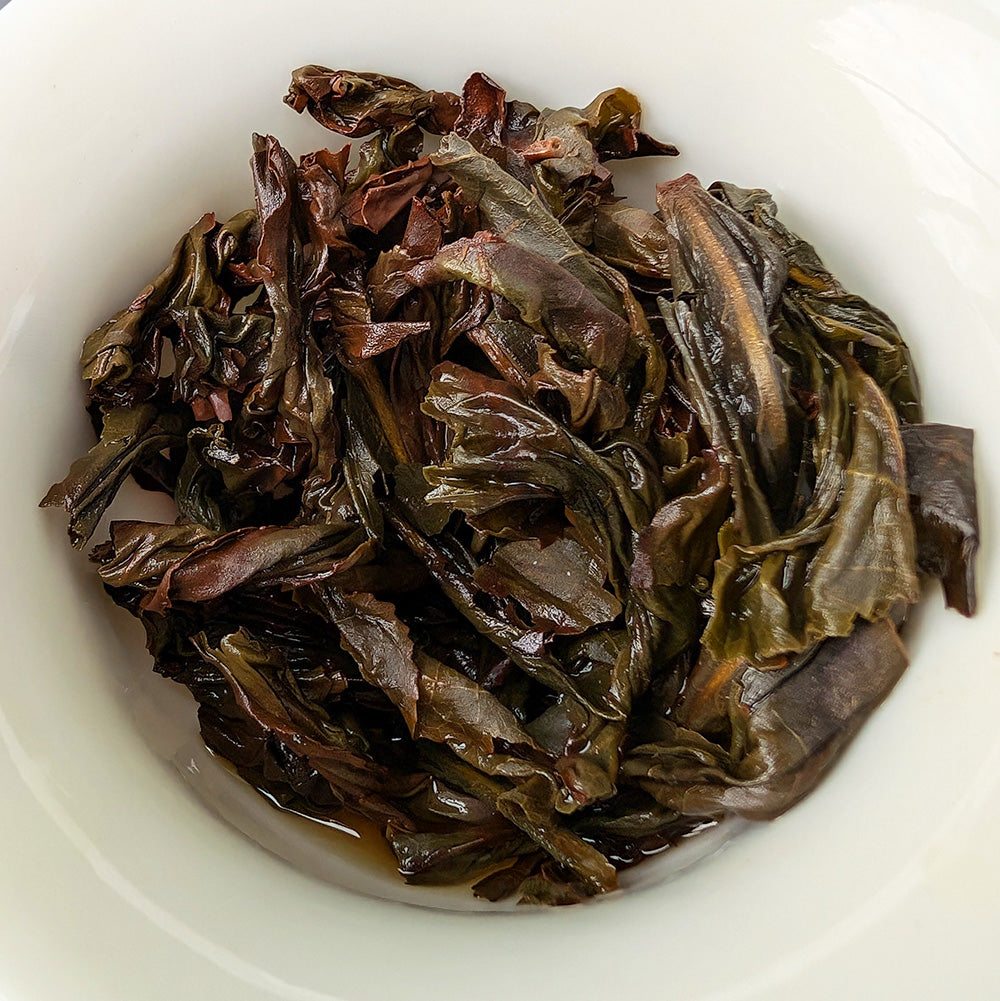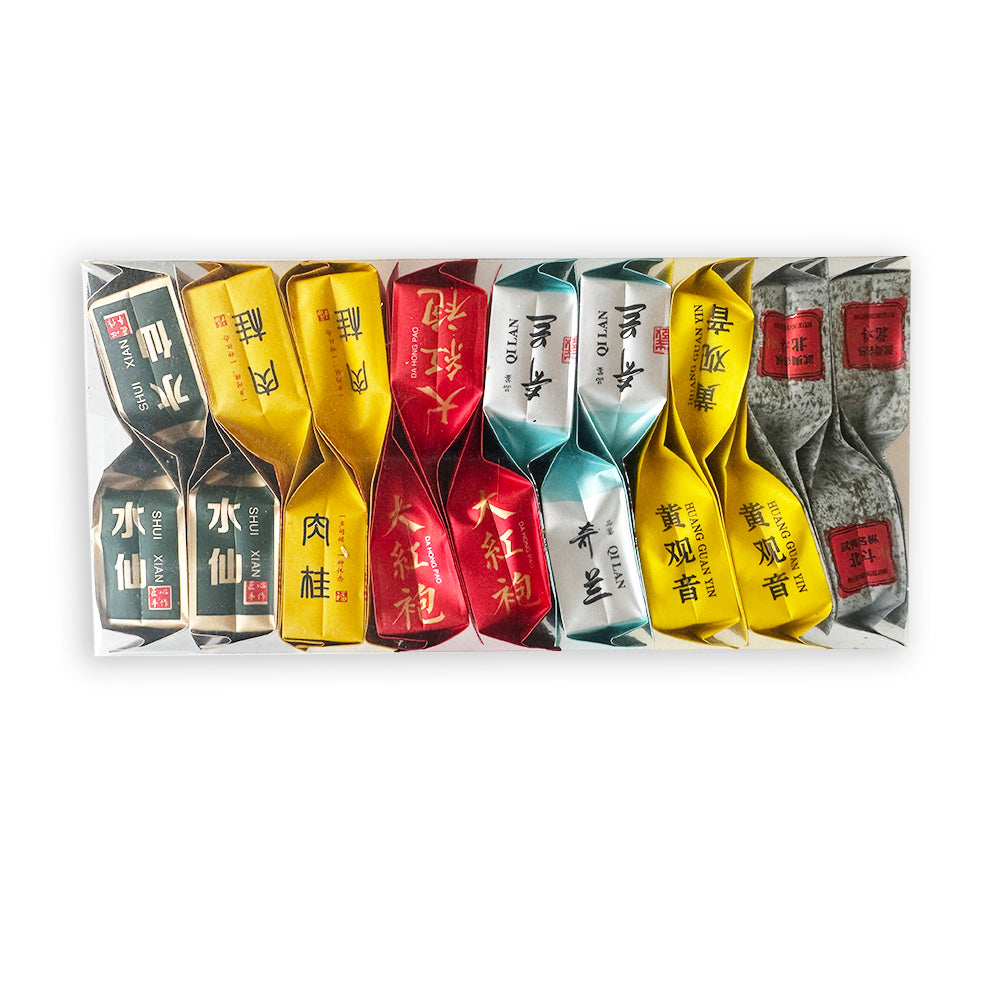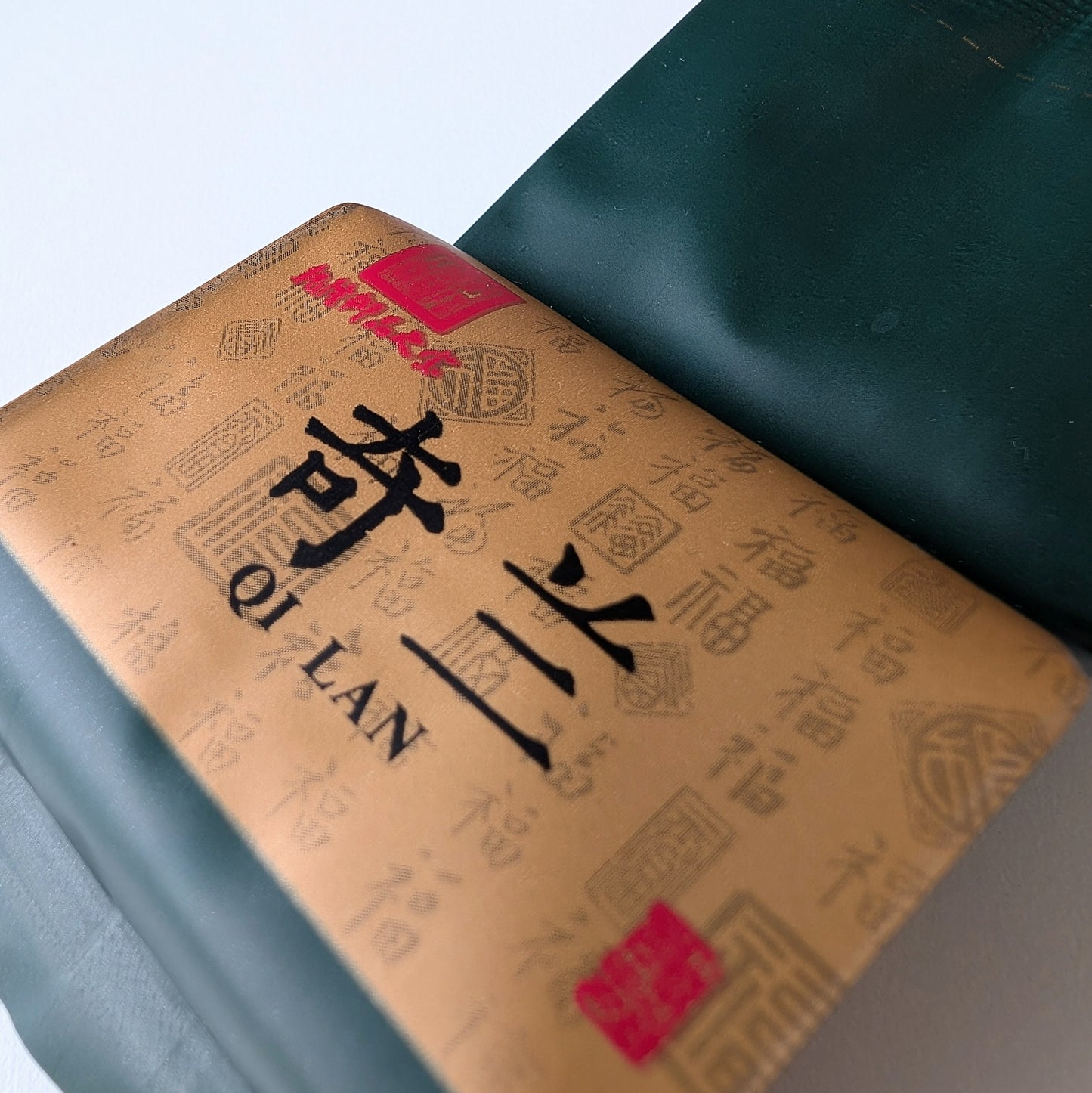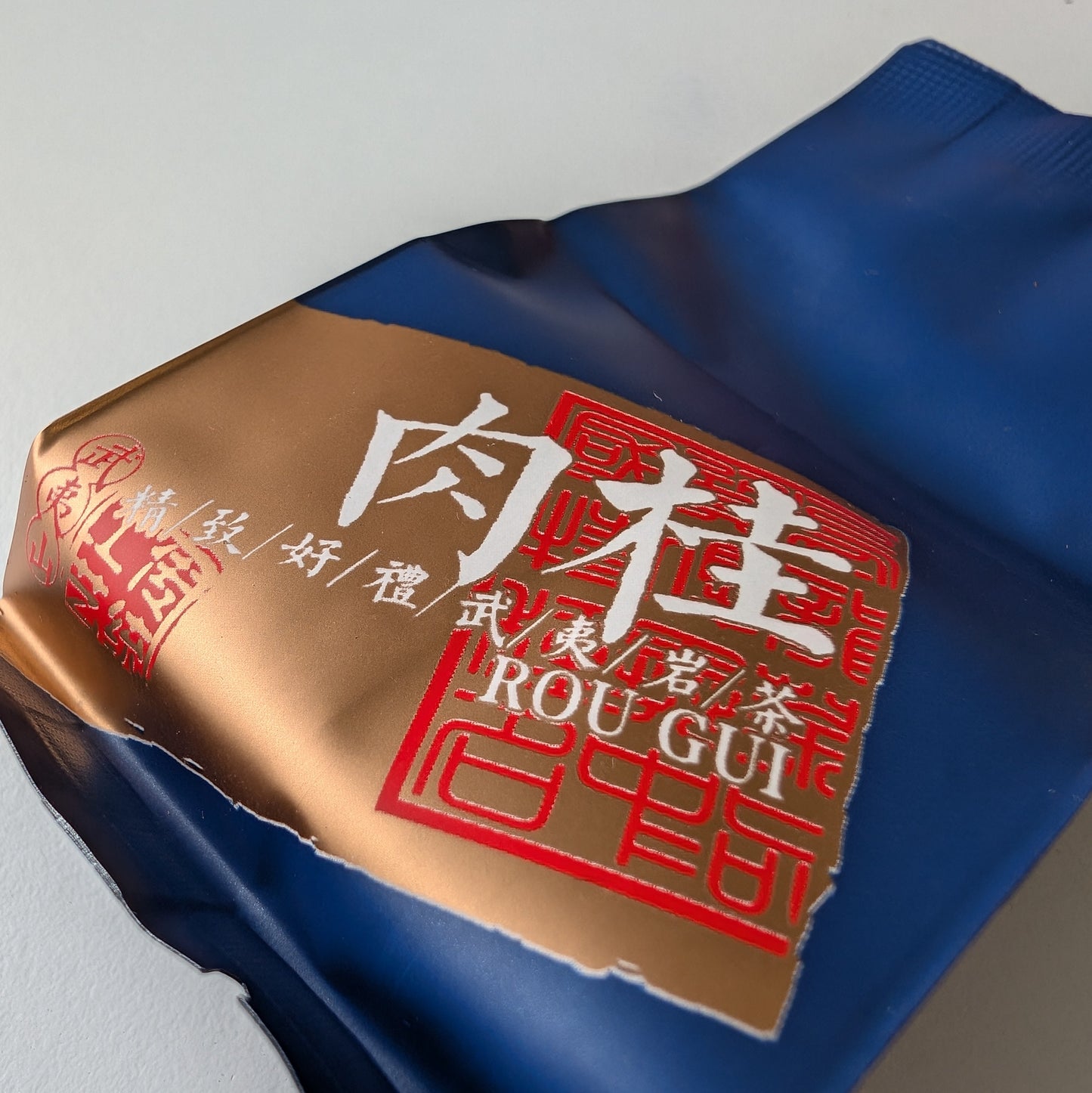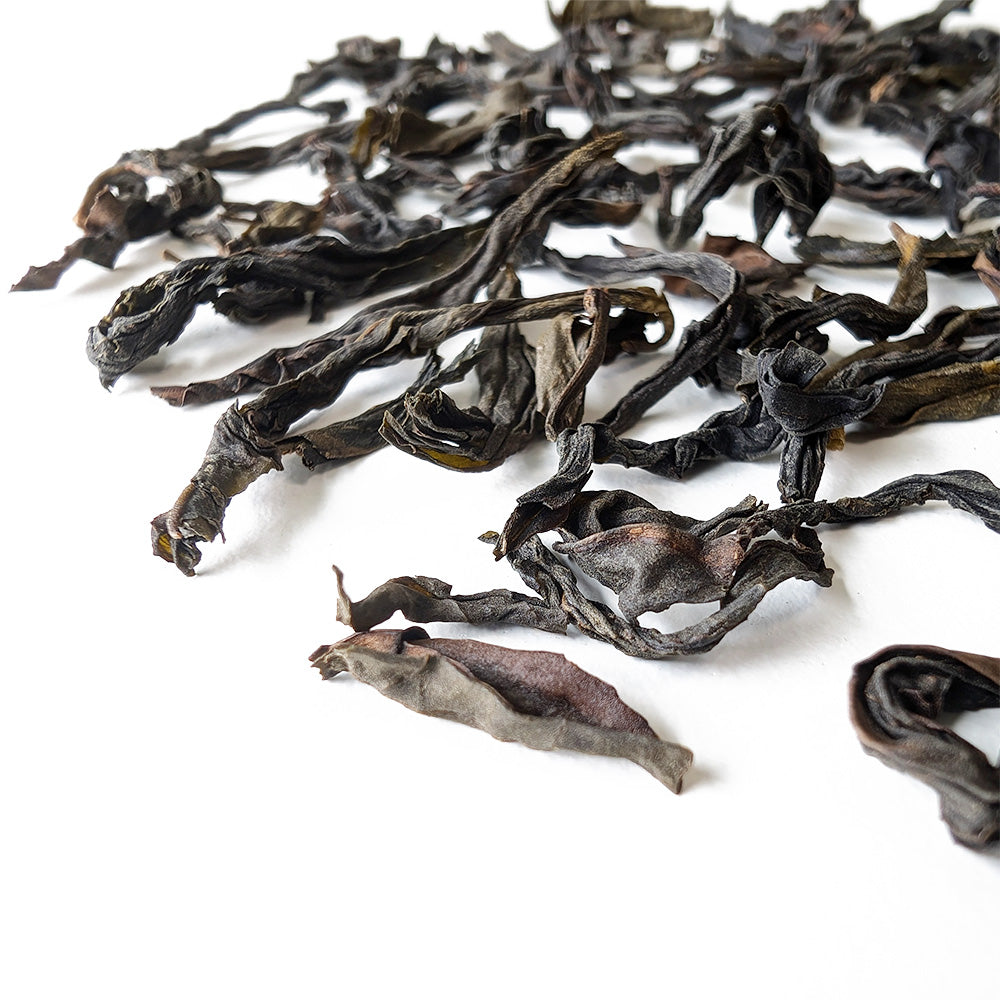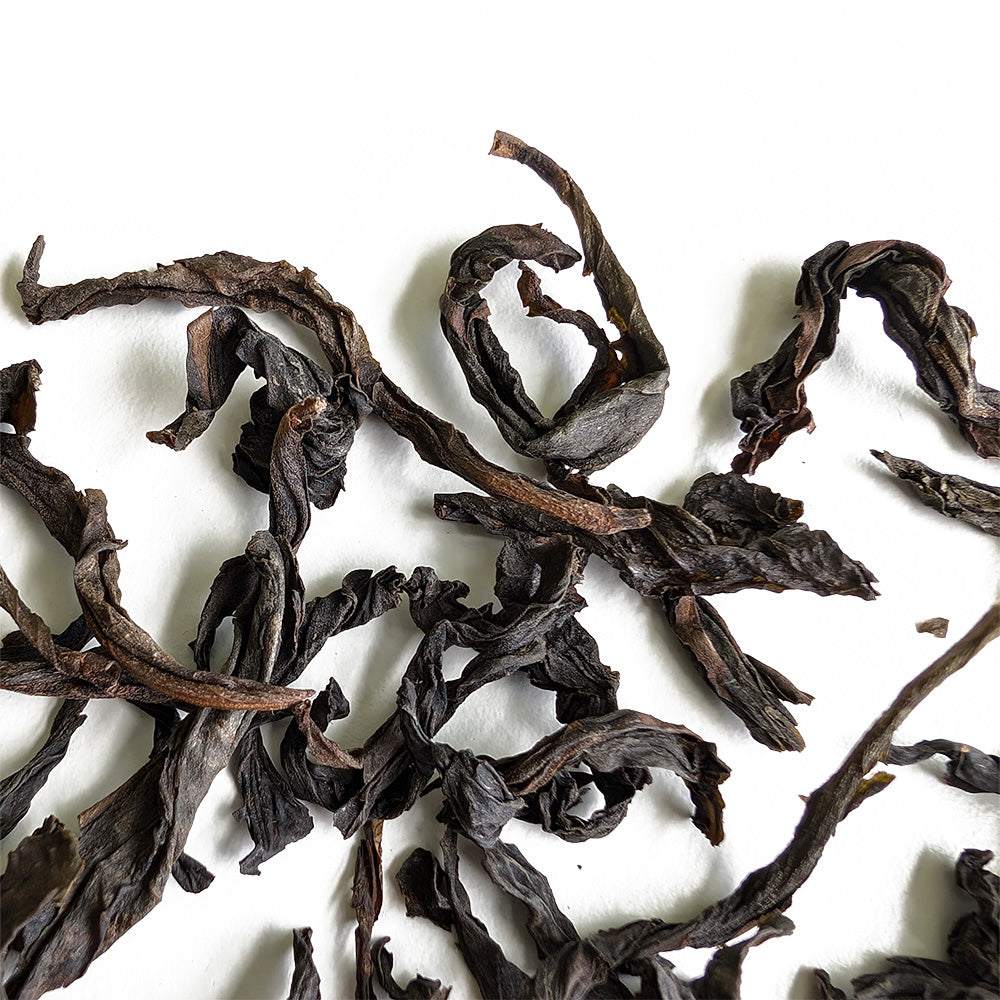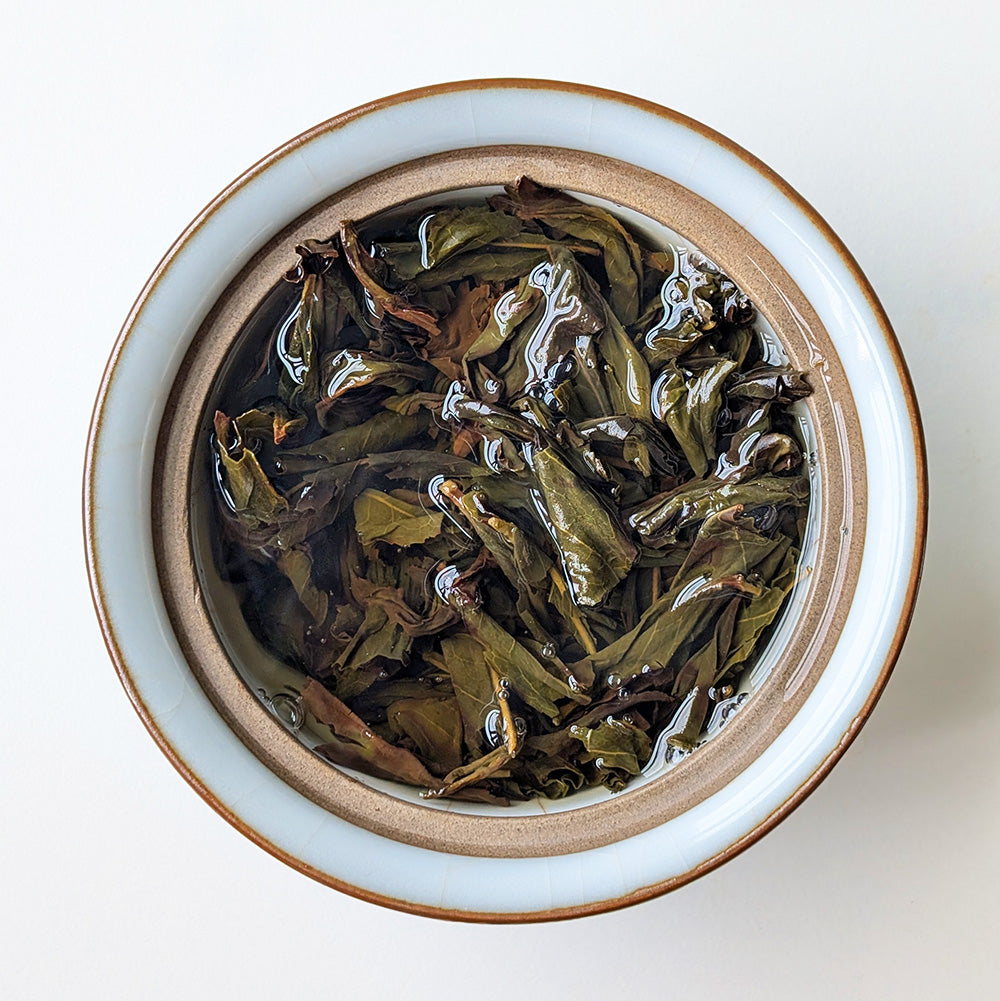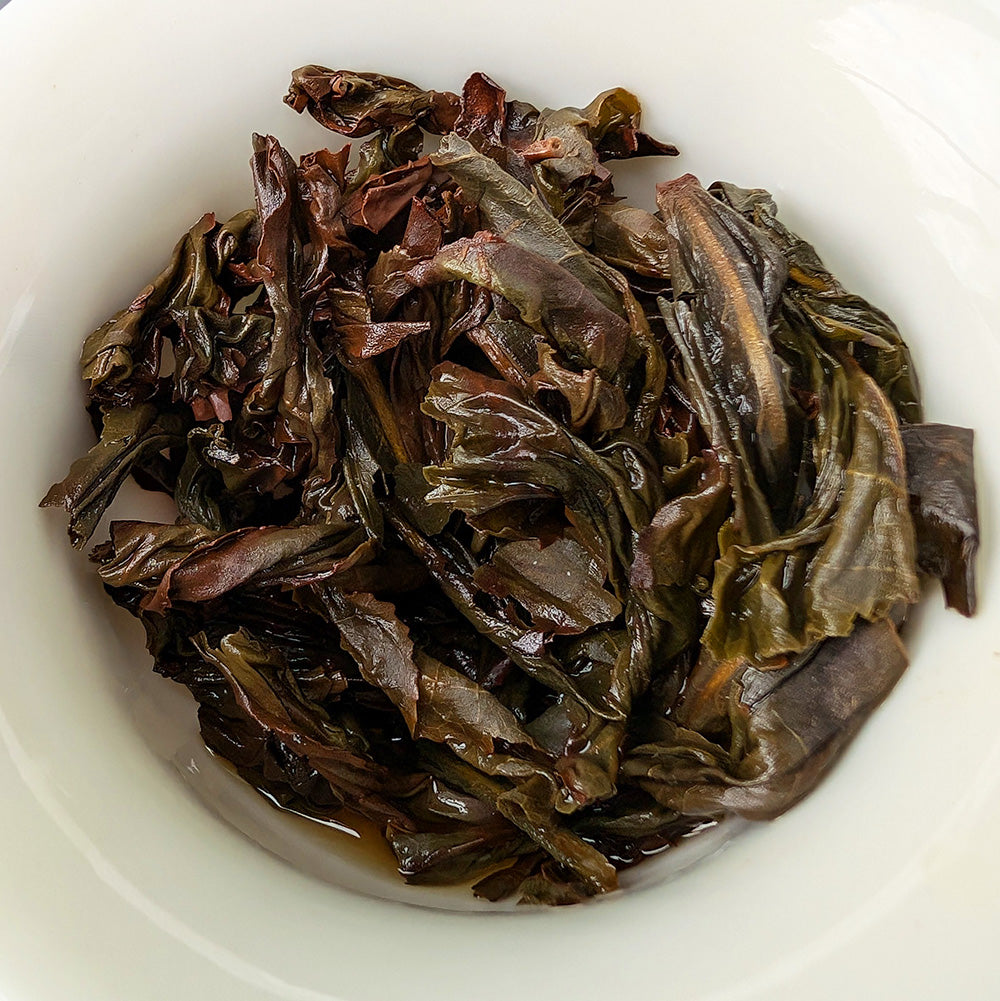Wuyi Rock Tea (Yan Cha) Sampler 'Rock Tea Impressions' - Yancha Tasting Set 144g
Wuyi Rock Tea (Yan Cha) Sampler 'Rock Tea Impressions' - Yancha Tasting Set 144g
Couldn't load pickup availability
A carefully curated selection of 6 rock teas (yancha) from 6 different tea gardens in Wuyishan. This tea sampler includes 3x8g packages of each tea, and is highly recommended for those seeking to experience the essence of authentic and high quality oolong tea from the Fujian province.
All teas feature a robust mineral and roasted aroma that is unique to the Wuyishan region. They allows you to gain an overall impression Fujian oolong teas and discover the nuances in the flavour of each type of rock tea.
Our tasting notes
- Da Hong Pao (Red Robe): the classic medium roasted mineral flavour of Wuyi rock tea.
- Qi Lan (Miracle Orchid): a lighter roast rock tea with beautiful nuances of honey and orchid flowers. It somewhat reminds us of a Mi Lan Xiang Dancong oolong tea.
- Huang Mei Gui (Yellow Rose): a light roast oolong with beautiful aromatic nuances of roses and nuts. The rosy aroma is particularly present in the after taste.
- Shui Xian (Water Sprite): a light-medium roast oolong with a green floral aromatic characters with a well-balanced astringency.
- Rou Gui (Cinnamon): a medium roast rock tea with hints of spices and cinnamon, which gradually transforms in a minty after taste.
- Bei Dou (Northern Dipper): a smooth and complex Rock tea with an aroma palette of fruits, nuts, spices and herbal jelly.
Premium 'Banyan' grade
All 6 teas are from tea gardens located in the vicinity of the scenic area, and are hence classified as 'Ban Yan' grade, which is just one grade below the extremely expensive 'Zheng Yan' grade of oolong teas, harvested inside the scenic region.
Origin
Origin
- Origin: Wuyishan, Fujian
- Season: Spring 2024
How to Steep
How to Steep
Western method
Infuse 3 grams of Rock tea with 500 ml water at a temperature of 100ºC and steep for 40 seconds. For a second steep increase the steeping time to 1 minute.
Traditional method
Infuse 5 grams of Yancha with 100ml water at 100ºC and steep for 5 seconds. For the second steep, again apply a 5 second steeping time. Increase the steeping time by 5 seconds for every next steep.
Cold-brewing
For cold-brewing you may use a bottle, jug, teapot or any brewing vessel that has a lid. Use 7 grams of Wuyi rock tea per 500ml of cold water. Cover the brewing vessel with a lid, and store in the fridge for 6-9 hours.
Shipping, Returns & Payment Methods
Shipping, Returns & Payment Methods
Delivery time: 1-10 day EU delivery. For estimates per country, please visit the shipping info page at the bottom of our website.
Import taxes?: because we ship from our EU warehouse, you will NOT be charged import taxes upon delivery if you're based in the EU. All taxes are already included in our prices.
Free shipping: available for orders over €59 for The Netherlands/Belgium, €80 for other EU countries (excluding Portugal & Hungary) & UK, and over €100 for other countries.
Returns: orders can be returned for a refund within 30 days. Products should returned in unopened, unused condition.
Share
How this oolong tea is made
-
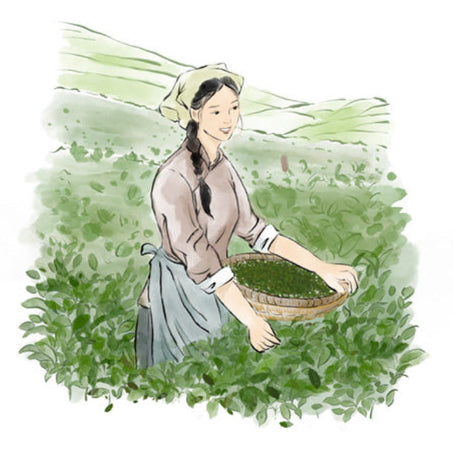
Picking
Tea leaves are hand-picked in the morning
-
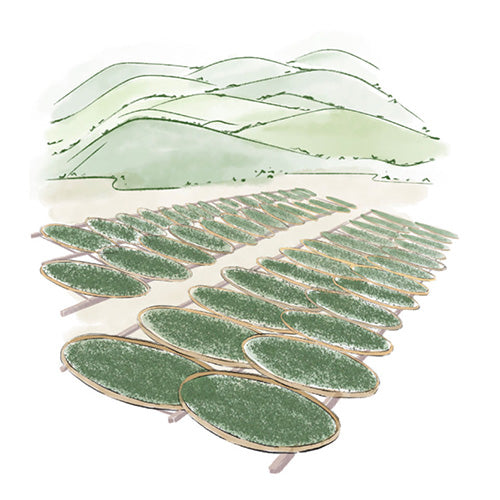
Withering
The leaves are spread on bamboo trays to wither.
-
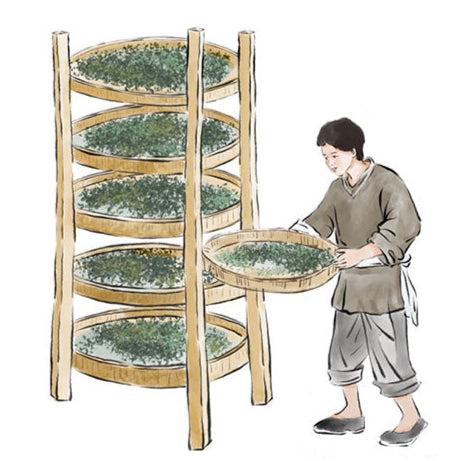
Partial Oxidation
The leaves are oxidized indoors.
-
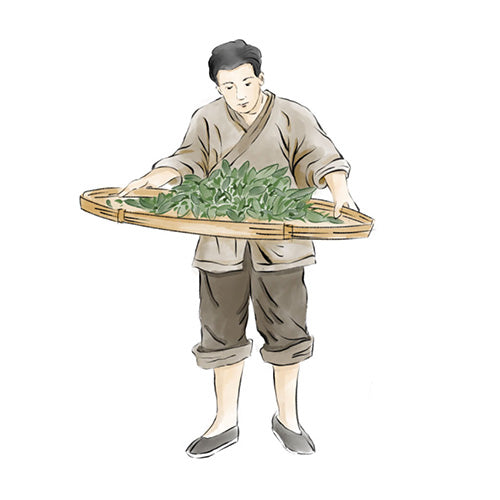
Bruising
To promote further oxidation, leaves are shaken on trays.
-
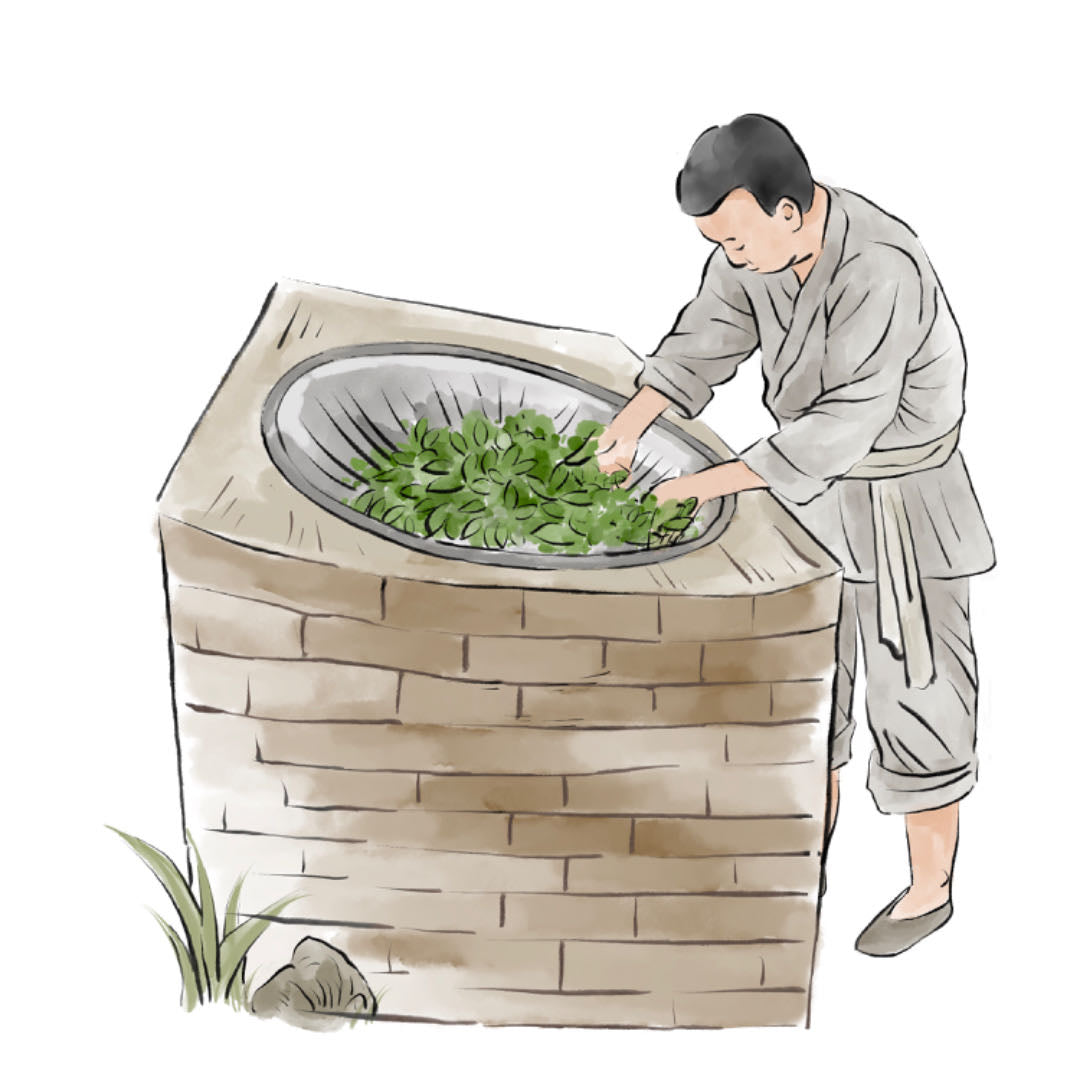
Fixation
The partially oxidized leaves are heated to halt oxidation.
-
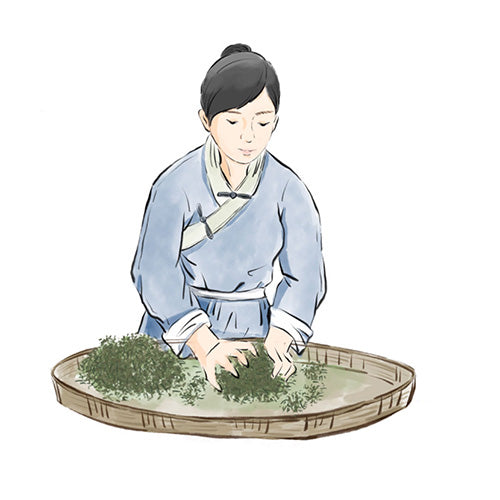
Rolling & Shaping
Tea leaves are rolled and shaped.
-
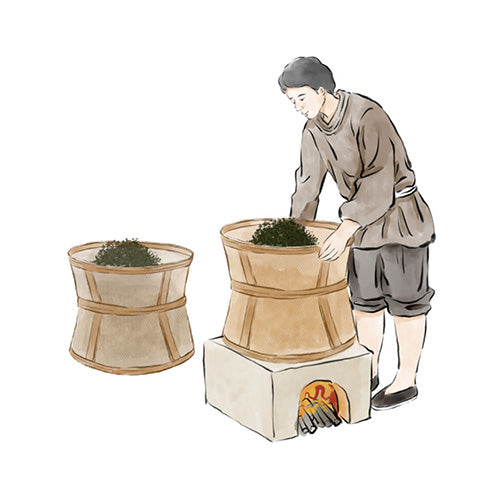
Drying
The leaves are dried to further reduce moisture.
-
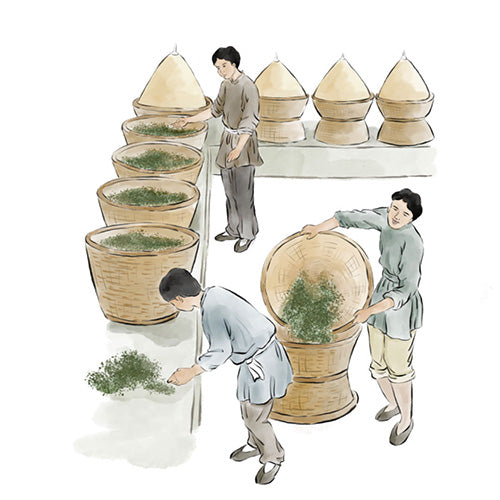
Roasting
Leaves are roasted in bamboo baskets to enhance aromas.

Our design work is inspired by the artwork “Along the River During the Qingming Festival” by the Zhang Zeduan in the Song Dynasty. Instead of displaying the daily lives of people in the capital of China (as the original artwork), we display the tea making process of farmers through the same bird’s eye perspective.
When examining our packaging design in detail, tea enthusiasts will observe the tea making process, featuring tea farmers picking, drying, rolling, and frying tea leaves. The tea is then tasted in a pavilion and transported by horses along the ‘ancient tea road’.
Together, the traditional Chinese landscape and tea making theme, symbolise heritage, tradition, and respect for hard work of tea farmers.

